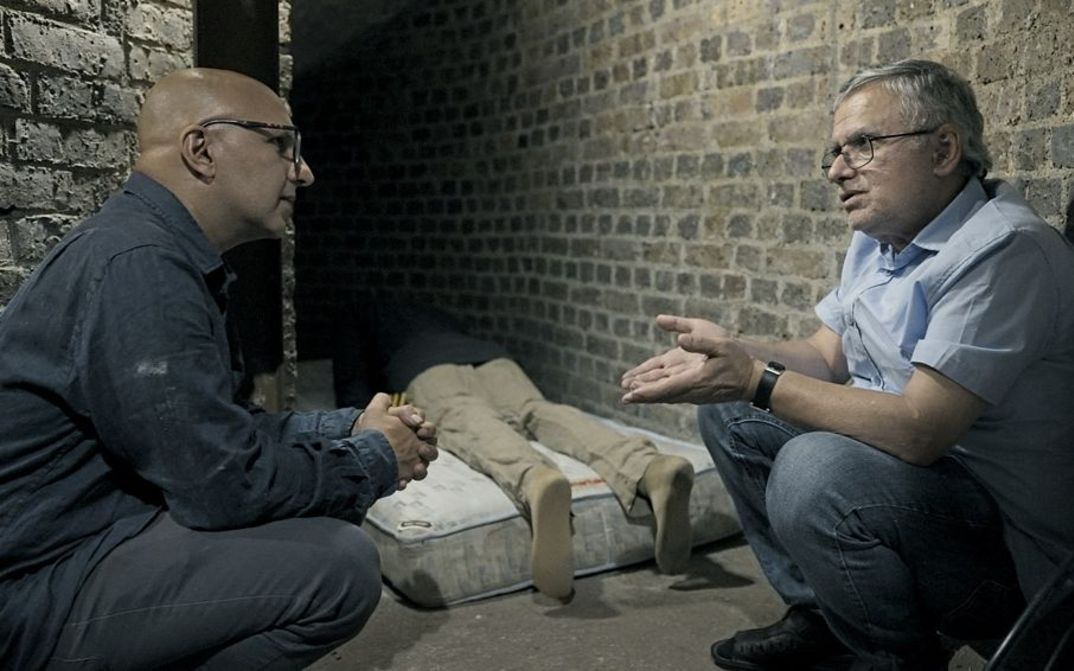Jaii keh khoda nist

Director
Mehran Tamadon
France, Switzerland / 2023
112 min.
/ Original version with English subtitles
Original language
Farsi, French
In an empty room on the edge of Paris, a prison cell is under construction. Director Mehran Tamadon is putting together a scaffold of wooden slats to mark out the walls and bunk beds. He’s talking to Homa Kalhori, who is busy painting prison bars on the wall and corrects him when the space he is constructing gets too large. She says the cells at Ghezel Hesar were much smaller: eight square meters for 25 to 30 women.
It is years since Tamadon has been in Iran. He himself was never imprisoned, although his passport was confiscated for a month after he filmed IRANIEN (Berlinale Forum 2014). By speaking with Kalhori and two other former political prisoners – Taghi Rahmani and Mazyar Ebrahimi – he is now looking to find out more about the years they spent in Evin or Ghezel Hesar. Over the course of the trio’s reconstructions and reenactments, they place their bodies back in the positions they took during their interrogation and torture. Will this enable them to convey their experiences? Is it helpful for them to return to the past? Providing no easy answers to these difficult questions, the film instead takes the liberty of repeatedly eyeing its own premise with quiet skepticism. (Cristina Nord)
Production Raphaël Pillosio, Elena Tatti. Production company L'atelier documentaire (Bordeaux, France). Director Mehran Tamadon. Written by Mehran Tamadon. Cinematography Patrick Tresch. Editing Mehran Tamadon, Luc Forveille. Sound design Simon Gendrot, Philippe Grivel. Sound Terence Meunier, Marc Parazon. Executive producer Raphaël Pillosio. Co-production Box Productions.
Mehran Tamadon, born in Teheran, Iran in 1972, he emigrated with his family to Paris in 1984. After studying architecture there, he returned to Iran, where he spent four years working as an architect. In 2004, he returned to Paris, where he turned to filmmaking and made his first documentary film BEHESHT ZAHRA (Mothers of Martyrs). His film IRANIEN featured in the Forum section of the Berlinale in 2014.
Films: 2004: Behesht zahra / Mothers of Martyrs (short documentary). 2009: Bassidji (documentary). 2014: Iranien (documentary). 2023: Jaii keh khoda nist / Where God Is Not, Mon pire ennemi / My Worst Enemy (documentary).